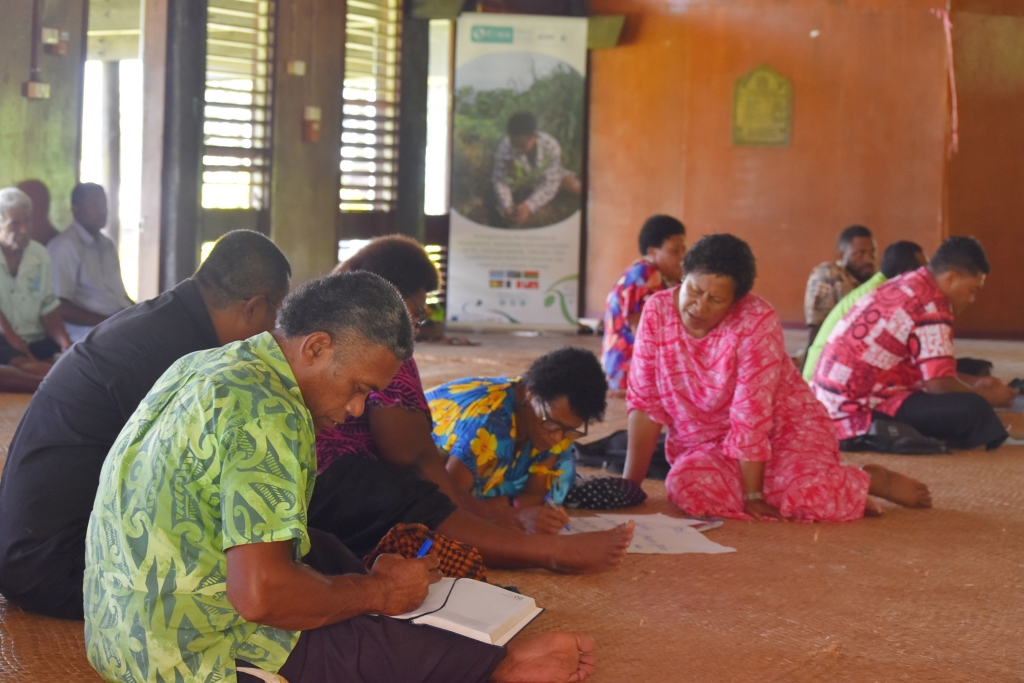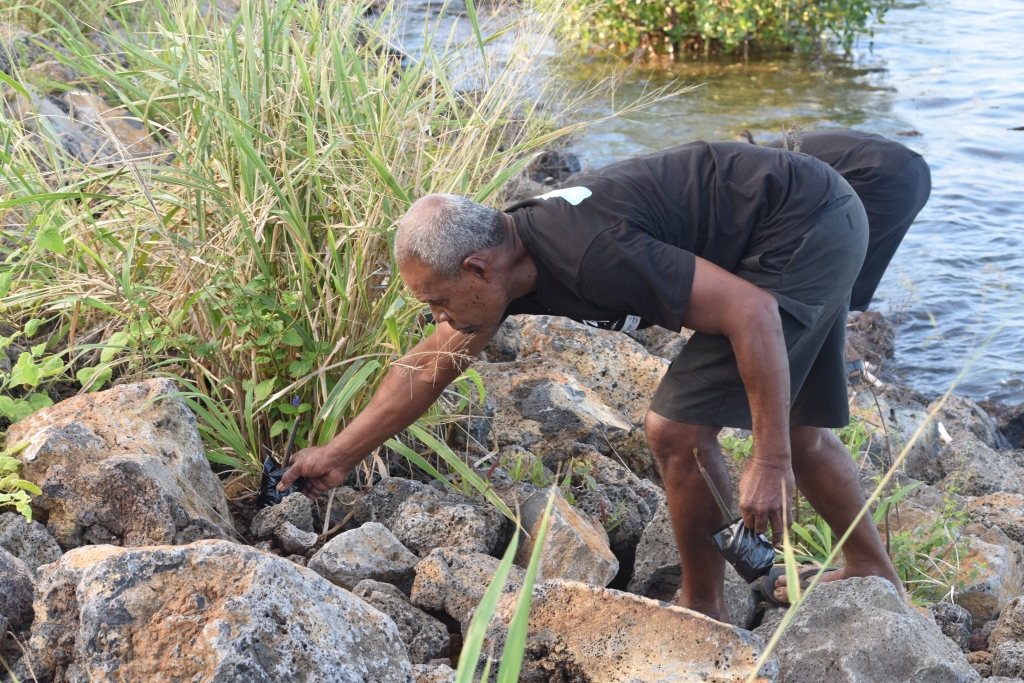
Taveuni, Fiji / 29 September 2023 – Taveuni Island, often known as the Garden Island of Fiji, is on its way to strengthening resilience through the protection, conservation, and sustainable management of its ecosystems. The Pacific Ecosystem-based Adaptation to Climate Change Phase 2 (PEBACC+) Project is implementing ecosystem-based adaptation interventions for healthy and resilient ecosystems and, as a result, will reduce vulnerability of communities to climate change impacts.
Funded by the Kiwa Initiative and the French Facility for Global Environment (FFEM), and implemented by the Secretariat of the Pacific Regional Environment Programme (SPREP), the PEBACC+ Project hosted a three-day inception workshop this week in collaboration with Cakaudrove Provincial Office in Taveuni. The workshop convened district traditional leaders, landowners, key community representatives – women’s group and youth groups, informal settlements, lease holders and farmers across the island to discuss on-the-ground project actions for nature-based solutions for climate change adaption and biodiversity conservation.
Assistant Roko for Taveuni at the Cakaudrove Provincial Office, Mr. Aloesi Rasaciva said in his opening remarks, “We are here for the purpose of safeguarding our environment and ecosystems and this is not a new conversation as the PEBACC+ Project is building on the first phase of the PEBACC Project.
We are grateful to SPREP, the Kiwa Initiative and the French Facility for Global Environment in continuing this work and it is crucial that there is strong community ownership to sustain these efforts for the benefit of Taveuni in this generation and the generations to come.”

The PEBACC+ Project in Fiji is supporting reforestation and agroforestry programmes on Taveuni Island. The project is also supporting the Blue Town Initiative in Savusavu, Vanua Levu, and supporting the capacity building and policy mainstreaming of Ecosystem-based Adaptation (EbA) and Nature-based Solutions (NbS).
These interventions were identified under the Ecosystem and Socio-economic Resilience Analysis and Mapping (ESRAM) report for Taveuni Island developed by SPREP on the first phase of the PEBACC Project, funded by German Government International Climate Initiative from 2015 to 2020. The ESRAM report is a baseline study that has helped identify vulnerabilities of ecosystem services at national, provincial and community scales, and has provided a basis for the design of ecosystem-based adaptation options for climate change adaptation planning to strengthen climate resilience.
PEBACC+ Project Manager and Fiji Country Coordinator at SPREP, Ms. Loraini Sivo said, “The ESRAM analysis identified critical climate- and non-climate related drivers of change that threaten the sustained supply of ecosystem services to communities, offering a participatory framework on developing EbA options to address those vulnerabilities.
For Taveuni, the second phase of the PEBACC project will not only scale up EbA interventions to reduce agricultural expansion into the forested areas but will also address coastal erosion through mangrove rehabilitation and reforestation of degraded riparian zones to protect clean water following in streams and rivers. Through the project’s agroforestry programmes there is the intention that farming practices will be sustainably managed.

There has been a strong sense of environmental stewardship and community ownership from the people of Taveuni as we discuss the importance of the project and nature-based solutions to be implemented.”
As part of the PEBACC+ Project Inception Workshop for Taveuni, participants spent the afternoon transplanting 50 native tree seedlings in Navakacoa Village and replanting 100 mangrove seedlings along the Naselesele coastline.
The three-day workshop started on 27 September 2023 and ends today with representatives from traditional leaders across households, villages, and districts as well as subsistence and commercial farmers, government, and non-government representatives. A National Inception Workshop is planned for Savusavu on 4 October 2023.
PEBACC+ is a €5.8 million regional project implemented by SPREP and funded by the Kiwa Initiative through its donors the European Union, Agence Française de Développement (AFD), Global Affairs Canada, Australian Government Department of Foreign Affairs and Trade (DFAT) and New Zealand Ministry of Foreign Affairs and Trade (MFAT), with co-financing from the French Facility for Global Environment (FFEM). This four-year project seeks to strengthen the resilience of ecosystems, economies, and communities to the impacts of climate change in Fiji, Vanuatu, Solomon Islands, New Caledonia, Wallis and Futuna. The project will develop, sustain, and institutionalise Ecosystem-based Adaptation to climate change in these five countries and territories.
For more information, please contact:
Setaita Tavanabola, Communications Officer, PEBACC+ Project, SPREP; tel: +679 9468748; email: [email protected].